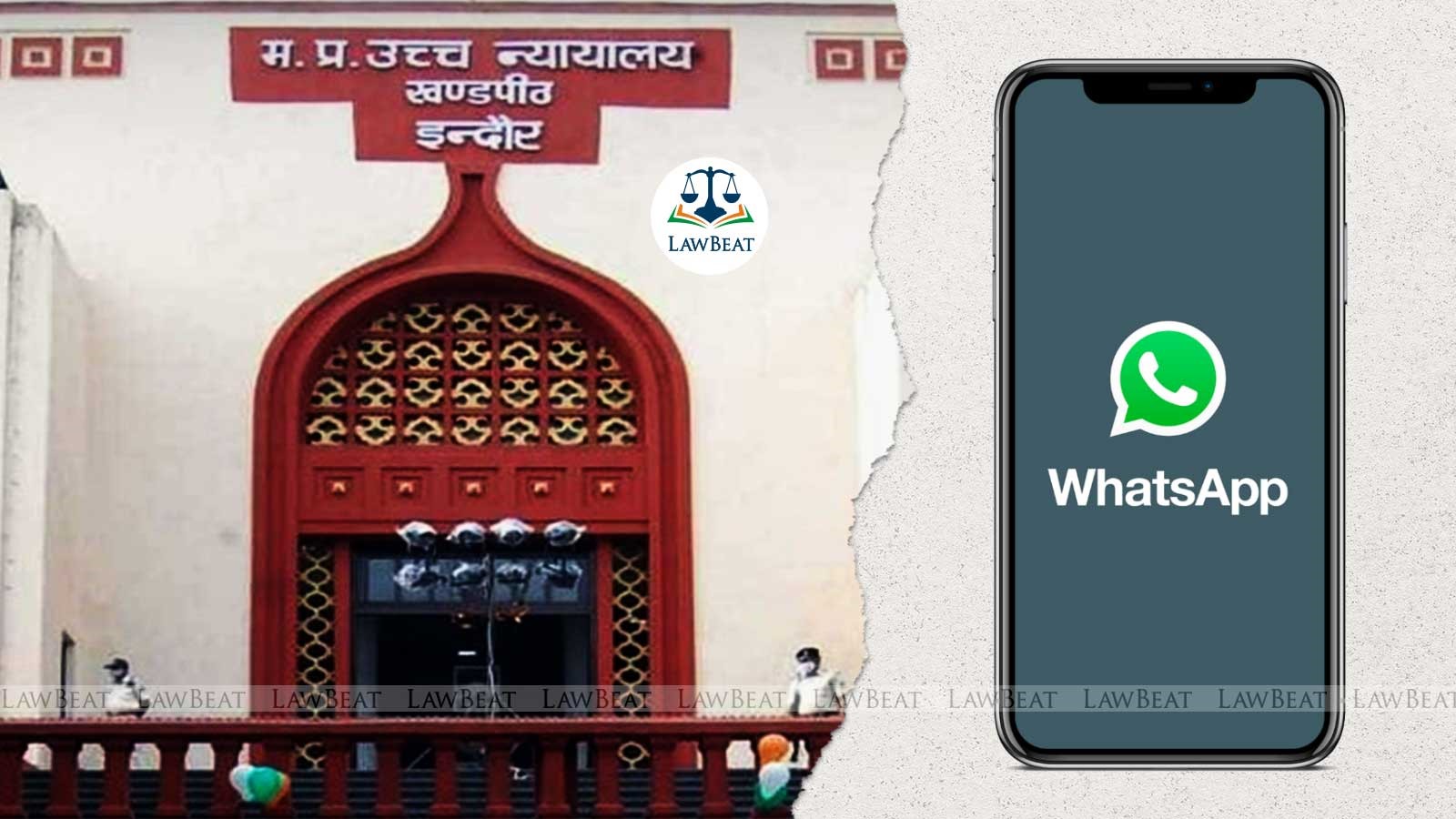Supporting Defamatory WhatsApp Posts Without Substantive Input Not Defamation : Madhya Pradesh HC

The court ruled that simply expressing agreement with a post by a one liner remark does not amount to defamation unless there is a clear intent to damage the complainant's reputation
The Madhya Pradesh High Court’s Indore Bench, in a significant ruling, has held that merely expressing agreement with a defamatory post on WhatsApp does not constitute defamation unless substantive contributions were made to the offending statements.
The court, presided over by Justice Subodh Abhyankar, made the observation while dismissing a petition by retired Air Marshal Harish Masand, who sought defamation charges against multiple members of a housing society's WhatsApp group. The court stated : “Merely expressing one’s agreement to a post by a one liner may be tantamount to agreeing to the expression made by the other members of the group/accused persons, however, this Court is also required to see the conversation in the WhatsApp group in its entirety, and has to see the context in which it is made, and also the purpose for which the Whatsapp group was formed.
The case involved a private defamation complaint filed by Air Marshal Harish Masand against eight individuals, alleging that they defamed him through messages posted in a WhatsApp group for their housing society. The complaint originated after Sandeep Gupta, one of the accused, posted a message on February 21, 2023, criticising Masand. This message was supported by other group members, including Gupta’s family.
Masand’s complaint was initially heard by a Judicial Magistrate, who, on May 17, 2023, took cognizance of the complaint against only two individuals, Sandeep Gupta and Lt. Col. Jagdish Pahuja (Retd.), but dismissed charges against the others. Masand challenged this decision in a higher court, which remanded the matter for reconsideration. On September 25, 2023, the trial court reaffirmed its original decision, which was later upheld by an additional sessions court on February 5, 2024. Masand, dissatisfied with the outcome, approached the High Court under Section 482 of the Criminal Procedure Code, arguing that all the individuals involved should face defamation charges. He contended that since the other accused persons had liked and supported the defamatory post, they should be held equally liable.
The petitioner argued that the actions of liking and commenting in support of Gupta’s post constituted defamation. He relied on several Supreme Court judgments, including Balraj Khanna vs. Moti Ram and Nazir Khan vs. State of Delhi, to support his claim that agreeing with or endorsing defamatory content should result in liability.
On the other hand, the counsel for the respondents, Advocate Rishiraj Trivedi, argued that the district courts had properly considered the facts and the limited roles of the other accused. It was contended that the allegations against Gupta and Pahuja were specific, while the other individuals made only brief remarks that did not amount to defamation. The respondents emphasised that the WhatsApp group was meant to address housing society matters, and the comments made by the respondents were spontaneous and unrelated to any intent to defame Masand.
After reviewing the WhatsApp conversations and the trial court orders, the court ruled that no illegality or jurisdictional error had been committed by the trial and additional sessions court. It found that only Gupta and Pahuja had expressed detailed criticisms of Masand, while the others made passing, cryptic remarks. The court clarified that the WhatsApp group was created for housing society discussions, not to defame Masand.
The court noted : “It is apparent that the aforesaid WhatsApp group was formed to facilitate the activities of the housing society, including its day- to-day problems, in which certain criticism has been made by one of the members, on which certain views have been expressed by the other members also, in a very cryptic manner. These comments appear to have been made without any premeditation, and on the spur of the moment only. They appear to have been made without any intention of defaming the petitioner, and in such circumstances, they cannot be held liable for the long posts which are made by only two members of the said group, namely, Sandeep Gupta and Lt. Col. Jagdish Pahuja (Retd.).”
The court emphasised the need for a clear intent to harm the reputation of the complainant and concluded that the comments by the other accused appeared spontaneous, without any premeditated intent to defame, and thus, they could not be held liable.
In light of these findings, the court dismissed Masand's petition, affirming the trial courts' decisions to proceed only against Gupta and Pahuja.
Cause Title: AIR MARSHAL HARISH MASAND v THE STATE OF MADHYA PRADESH AND OTHERS [MCRC No.10231-2024]
